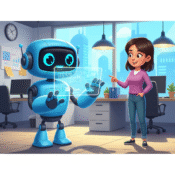From Machine Manufacturing to Machine Learning
For centuries, humanity has been captivated by the dream of creating intelligent machines. This aspiration found its first tangible expression in the Industrial Revolution, an epoch defined by the advent of mechanical marvels that revolutionized production processes. These ingenious contraptions, with their intricate gears and cogs, transformed laborious tasks into efficient, repeatable operations.
However, the Industrial Revolution marked merely the prelude to a far more profound transformation. In recent decades, we have witnessed the emergence of a new era, one characterized by the rise of machine learning. This revolutionary paradigm shift has seen machines transition from mere tools to intelligent agents capable of learning, adapting, and making decisions.
At the heart of this transformation lies a fundamental change in the nature of machine intelligence. Whereas traditional machines were programmed with explicit instructions, machine learning algorithms enable computers to learn patterns from data, much like the human brain. This ability to acquire knowledge through experience has opened up a vast array of possibilities, from self-driving cars to medical diagnosis systems.
The implications of this technological revolution are far-reaching. As machines become increasingly adept at learning and reasoning, they are poised to reshape industries, economies, and societies. From automating mundane tasks to accelerating scientific discovery, machine learning is poised to become a ubiquitous force in the 21st century.
However, this technological advancement also presents challenges. As machines become more autonomous, questions arise regarding ethical considerations, job displacement, and the potential for unintended consequences. It is imperative that we approach this new era with foresight and prudence, ensuring that the benefits of machine learning are harnessed for the betterment of humanity.
In conclusion, the transition from the machine manufacturing era to the machine learning era represents a pivotal moment in human history. As we navigate this uncharted territory, it is essential to embrace the transformative potential of machine intelligence while remaining mindful of its ethical implications. By doing so, we can harness the power of machines to create a future that is both prosperous and equitable.



